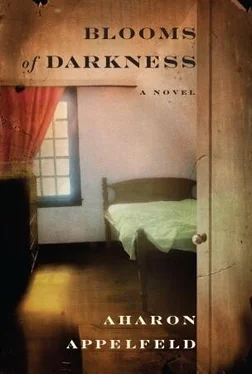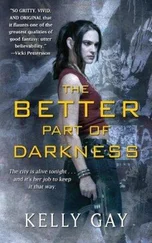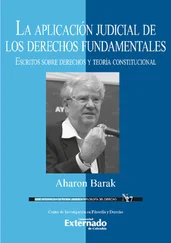People approach Hugo and say, “You’re Hugo, right?”
“Right.”
“My name is Tina,” one of them says, “and I am Otto’s aunt.”
“Where is Otto?” Hugo is frightened and rises to his feet. “God knows. I’m waiting for everyone from my family. Where were you?”
“With Mariana.”
“Poor thing. The sentence was horrible.”
“It didn’t apply to Mariana.” The words escape from his mouth.
“I’m glad.”
After a pause she adds, “I’m desperate to know what happened to my family. The news is confusing and contradictory. People here told me that they saw Otto’s mother. But others say that she wasn’t his mother, only a woman who looked like her. I’ve decided to wait. I won’t move from here. We mustn’t lose hope. There’s no reason to live without hope. As long as we live, we have to hope. That’s how God created us, whether we like it or not.” She speaks in a torrent, as though she were reading or reciting. It’s clear she isn’t in control of what comes out of her mouth. The words pour out in a flood. “I won’t go away from here. No power can move me. I’ll wait here until the last moments of my life.” She puts her hand on her mouth, but that gesture doesn’t stop the flow of words. In the end she says to him, “Excuse me. Now I must be by myself.” She turns away and is swallowed up in the darkness.
That night Hugo sleeps deeply. Scenes from his home and images that had just now passed before him creep into his dreams. In that mix Mariana stands out — not only her statuesque body but also the things that she says. She speaks about God and about the need to be close to Him. The refugees look at her and don’t believe their ears. Her blowsy appearance contrasts with her pious words. Most of the refugees don’t recognize her, but those who do say, with a smile, “If Mariana is talking about God, that’s a sign that the Messiah is about to come.” That, of course, is a barbed comment. Mariana simply amuses them.
Then she addresses them with a theatrical gesture and says, “You all know Hugo. But you only think that you know him. This is a different Hugo. What he managed to learn since I took him in cannot be measured. I planted everything that I had in his soul. I presume that certain people will have reservations about some of the things I taught him, but don’t worry, I equipped him with a lot of faith. Now he knows that God dwells everywhere. That should be no small thing in your eyes. Opposition to the existence of God is so strong that even a little faith costs people a lot. That’s why I said that Hugo has changed not only externally. He is going to surprise you.”
Hugo wakes from his dream. The refugees lie curled up in their coats. It doesn’t appear as though they have heard Mariana’s words. Maybe they heard and now are waiting for her second appearance.
Hugo rises to his feet and sees for the first time that this part of the city has not changed at all: it is filled with two-story buildings. Families live on the upper story, and stores and workshops are on the ground floor. Jews did not live here. The stores and workshops are not yet open, and the tranquility of early morning still rests upon the houses. It’s evident that the Ukrainians have not been driven out of their homes; even during the war they kept up their daily routines. There are no architectural treasures or notable buildings in this neighborhood. Everything here says: a house is simply a house, divided correctly and open to the garden. Decorations and ironwork are for the rich. Hugo absorbed an appreciation for that sort of simplicity in the past, and he remembers it.
Later new refugees arrive. Hugo vaguely remembers some of them but most are strangers to him. Perhaps because of their extreme emaciation, it is obvious that something within them has died. And the part that is left can’t explain what has happened to them.
“We’ve changed,” one of the new arrivals jokes.
“So it appears,” responds his friend.
In addition to the pot of soup and the sandwiches, someone put up a new stand, where they serve drinks and hand out cigarettes. The German army left behind storehouses full of supplies, and the refugees arrive with full sacks. A woman with unkempt hair, wearing a military coat whose buttons have been torn off, prepares a pot of coffee and speaks to the refugees as if they were her brothers and sisters, and as if they had just awakened from a troubled sleep. “Drink, children, drink,” she says to them softly. “I’ve prepared excellent coffee for you. There are goods in abundance. I’ll cook whatever you want.” She has apparently had a few drinks, and she is in an exalted mood. The refugees approach her, and she pours generously for them and blesses them. It’s evident that she wants to give them something of her own to make them happy. The people are embarrassed by such a display of devotion.
Hugo observes the new refugees. They resemble his parents, but some are older. It’s hard to know what they have undergone. Their gray faces are expressionless. They barely speak.
Later Hugo says to himself, I’ll go and see the city . This was what he would sometimes say to himself after he had finished his homework and light still flickered in the windows. He liked that hour. Toward evening the city used to take on a new life. The sound of music playing could be heard from open windows, and people sat in coffeehouses, enjoying themselves and releasing the tension from a day of labor. Sometimes Hugo would meet Anna or Otto, and they would go into a coffeehouse and order ice cream. There was ice cream in almost every good coffeehouse, but the Alaska Café was famous for theirs.
At one of those relaxed meetings, Anna told Hugo that she intended to become an author. Her piano playing had indeed improved, but she couldn’t stand the thought of the exhausting practice sessions and all the performances she would have to give over the years. Anna was outstanding in all subjects, but her compositions were famous throughout the school. They were read out loud not only in her class but in other classes as well. Everybody praised her rich vocabulary, her powers of description, her subtle humor, and of course her abundance of ideas.
“How to you intend to become an author?” Hugo asked her cautiously.
“I’m reading the classics.”
“Flaubert?”
“Among others.”
At that time Hugo was reading Jules Verne and Karl May, but Anna had other ideas.
It now seems to Hugo that everything that happened to him since leaving his home was a personal trial over which he had no control. His real life is being lived now, in this city. Here he knows every corner, every bend in the road, the broad avenues along which the trams travel.
Almost without realizing it, Hugo grips the suitcase and the knapsack and sets out. He advances slowly, as though he fears encountering a sight that will surprise him, but there is nothing surprising in what is revealed to him. Everything happens at a slow pace. Old people sit in the doorways of their houses, and wagons full of wood roll lazily down the street. That relaxed atmosphere, which Hugo remembers from his childhood and which now appears before his eyes, confirms his belief that what happened to him when he left his home was only a personal trial. Now he is emerging from the tunnel, and he walks on stable ground. Here nothing has changed. His fear that the city had been destroyed by bombing or looted by the German and Russian armies was for naught.
Hugo carefully examines everything that he comes across: nothing has changed, everything is as it was. There is Cyril’s ice-cream stand. It’s open, and Cyril stands inside, carefully dressed, as always. There is nothing exceptional in his demeanor. On the contrary, he looks at ease, and confident that customers will soon arrive.
Читать дальше












